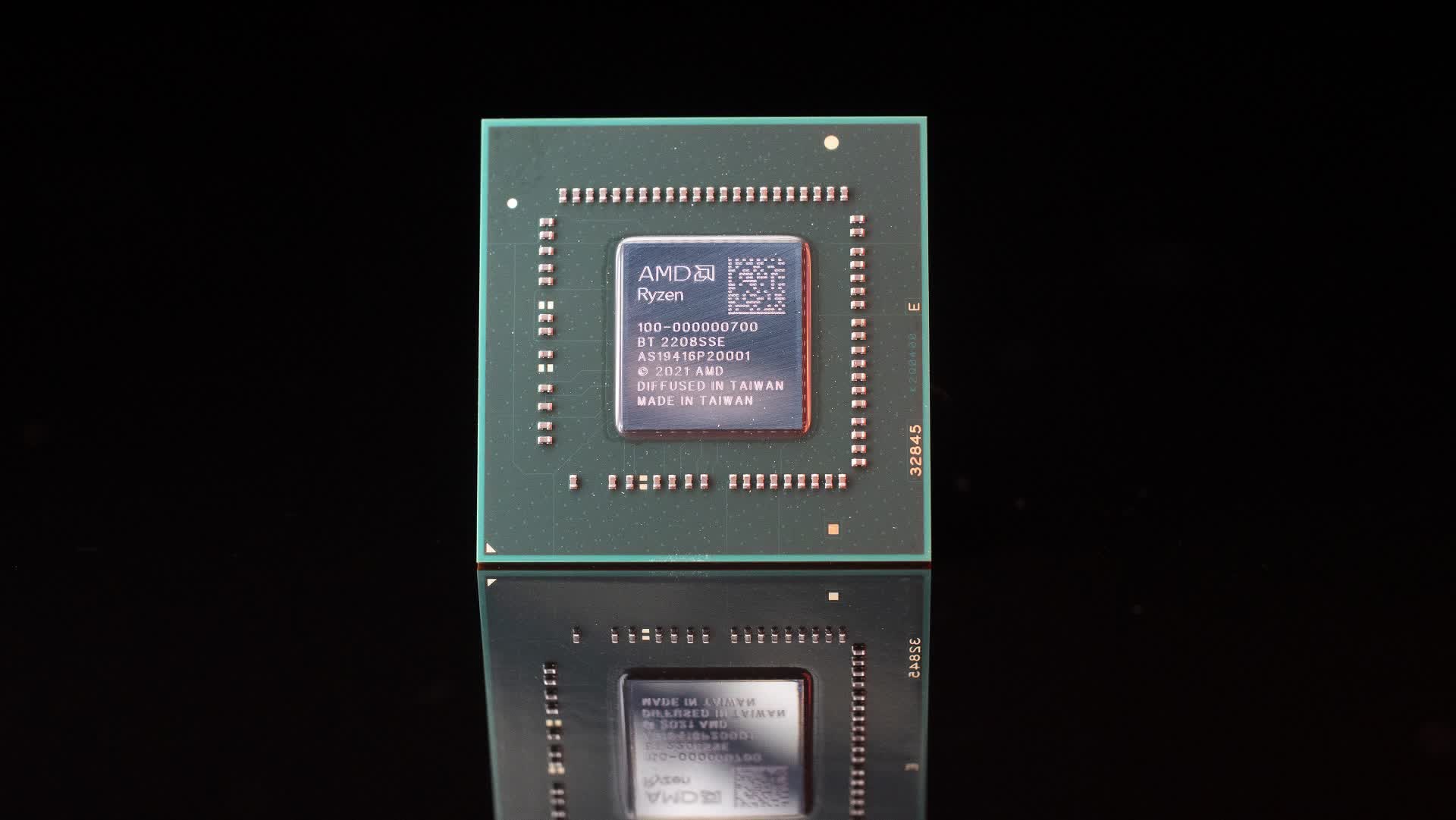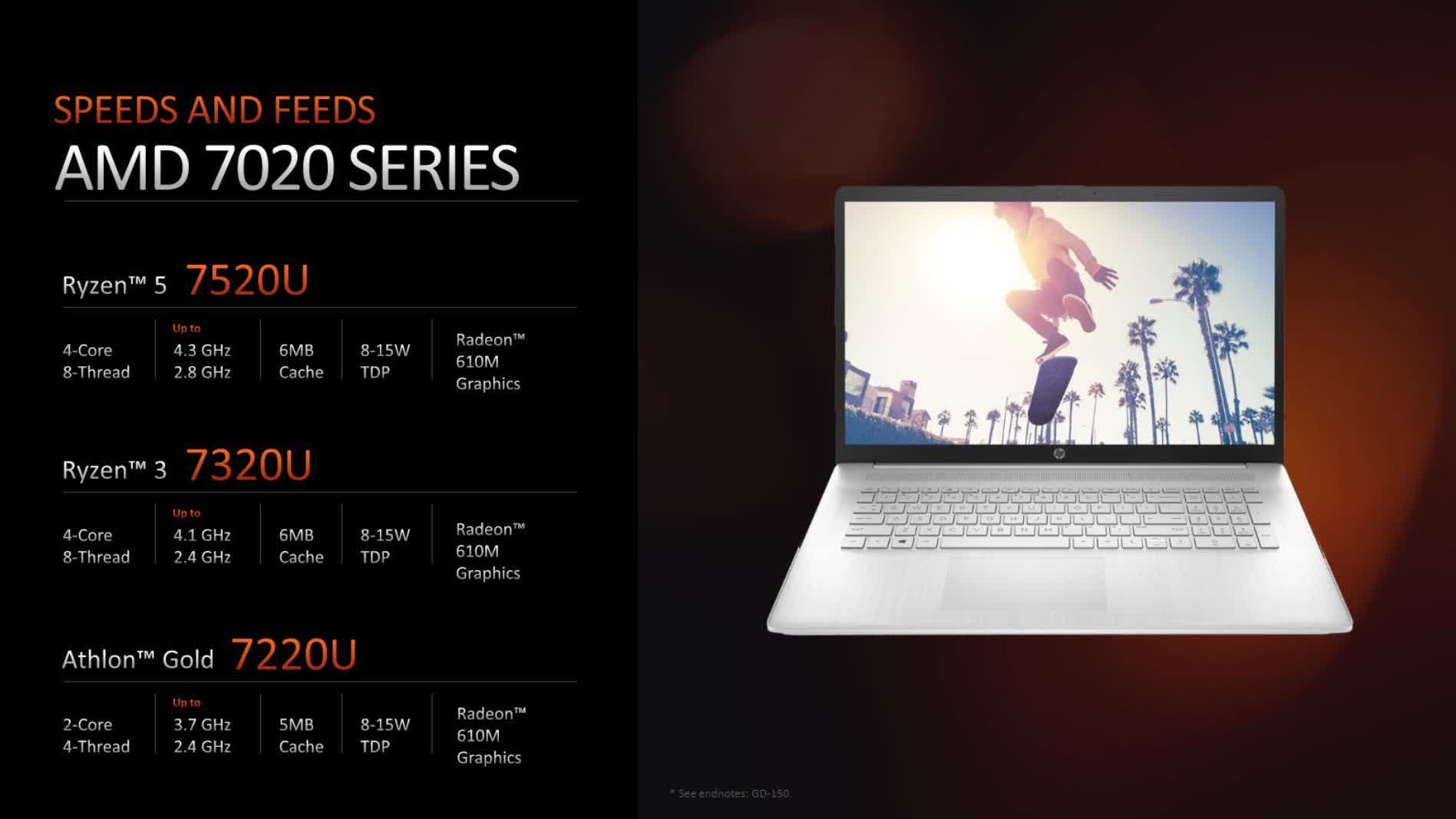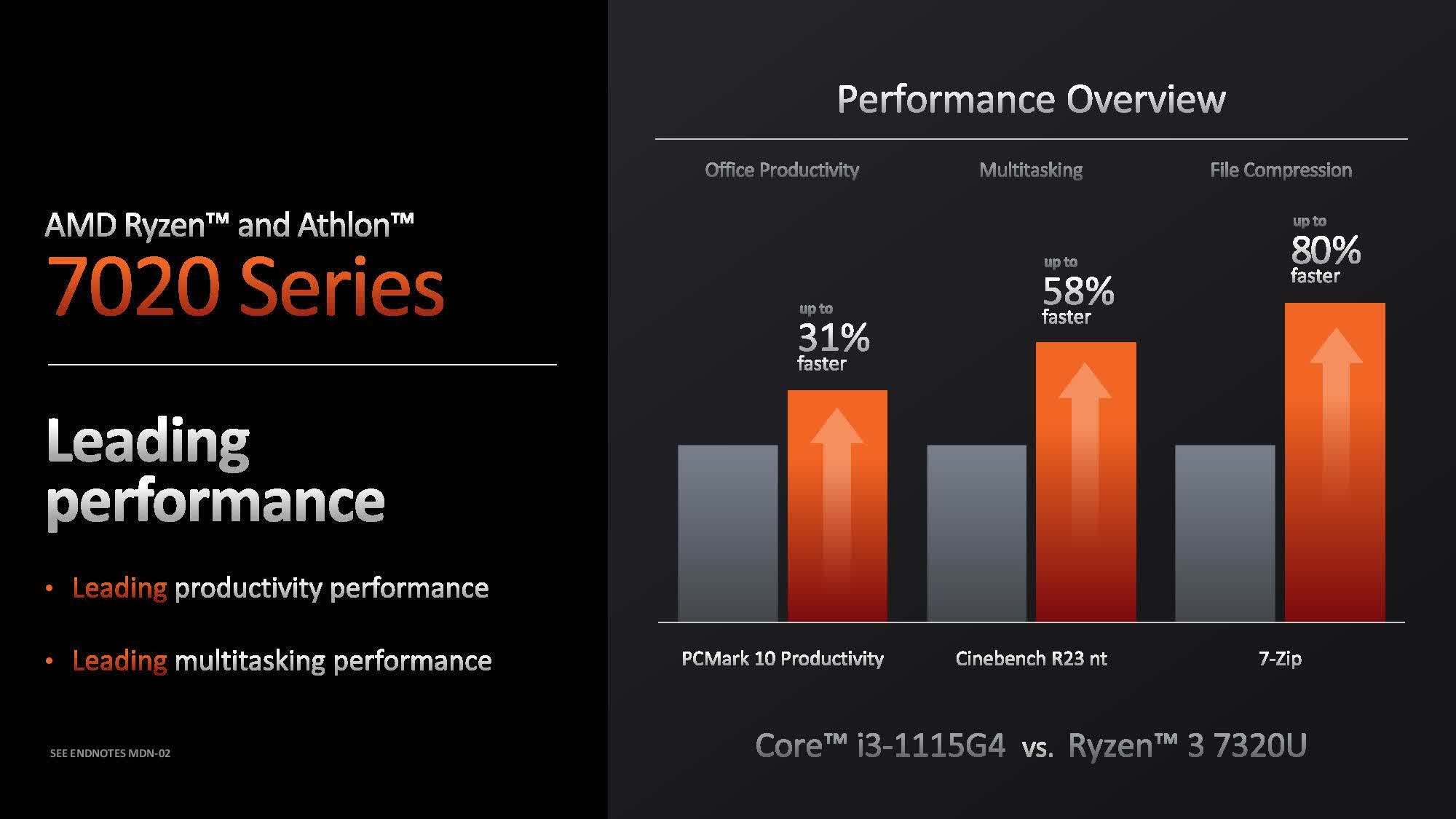Bottom line: AMD's new Mendocino APUs will see use in Chromebooks and entry-level Windows notebooks meant for everyday users. While they won't break any performance records, they should provide above-average battery life as they barely sip any power.

AMD has detailed its first Ryzen 7000 series mobile processor lineup codenamed Mendocino. Unlike the company's upcoming desktop Zen 4 lineup, AMD seems to be taking a bottom-up approach with their notebook chips, as the Ryzen 7020 lineup is meant for entry-level machines.
The 7020 series APUs announced today are the first to use AMD's new mobile CPU naming scheme. The first digit tells us these are model year 2023 chips, while the third indicates that Mendocino utilizes the Zen 2 architecture. The U suffix normally means an adjustable TDP range between 15-28W, but AMD confirmed all Ryzen 7020 chips have a 15W maximum TDP.

All Mendocino processors are built on a TSMC 6nm process node and support up to 16GB of dual-channel LPDDR5 memory. The APUs have integrated AMD Radeon 610M graphics, which consists of two RDNA2 compute units boosting up to 1.9 GHz.
Starting from the top of the lineup, the Ryzen 5 7520U has four cores and eight threads, a 2.8 GHz base clock, and a 4.3 GHz single-core boost. It also includes 2MB of L2 cache (512KB per core) and 4MB of L3 cache. One tier lower is the Ryzen 3 7320U, which keeps the same core and cache arrangement, but drops to a 2.4 GHz base frequency and 4.1 GHz maximum boost.

Moving on to the Athlon branded chips, the Athlon Gold 7220U is a dual-core SKU with multithreading, a 2.4 GHz base clock, and a 3.7 GHz boost. It has 1MB of L2 cache but keeps the full 4MB L3 cache. Finally, there's the Athlon Silver 7120U, which, strangely enough, AMD decided not to include in its slide, even though it's on the site. It drops multithreading support, has a lower 3.5 GHz single core boost, and only gets 2MB of L3 cache.
Notebooks equipped with Mendocino APUs are set to come out in the fourth quarter from OEMs such as Acer, HP, and Lenovo. AMD claims these laptops will have MSRPs ranging from $399 to $699.
https://www.techspot.com/news/96047-amd-launches-mendocino-apus-entry-level-notebooks-zen.html